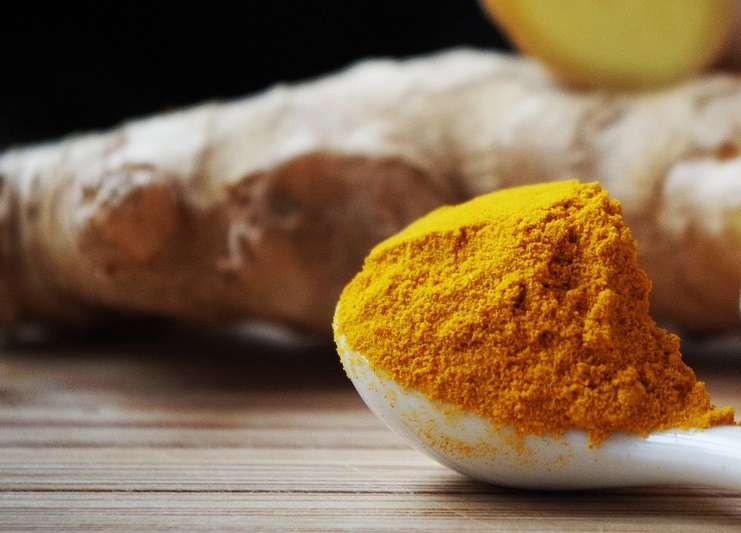|
Listen To The Article
|
Did you know that foods with deep colors usually have the most nutritional benefits? Dark berries, such as blueberries, raspberries and cherries, have powerful antioxidants, for example. Another example of a powerful, colorful superfood is turmeric.
Turmeric is a rhizome, similar to ginger, that grows wild in Southeast Asia, and it is what provides curry dishes with their deep golden color. Turmeric contains curcumin, an amazing compound that can protect and repair cells and can promote healing in the human body.
According to the Journal of the American Chemical Society, turmeric has antioxidant, antibacterial, antiviral, antifungal, anti-mutagenic, anti-carcinogenic and anti-inflammatory properties.
The flavorful spice, which is a mainstay in many Asian dishes, also is a good source of protein, dietary fiber, niacin, calcium, potassium, copper, magnesium, zinc, iron and Vitamins C, E and K.
8 Benefits Of Turmeric
As you might expect, turmeric has been used for centuries to treat a variety of health problems. Here are eight ways turmeric can heal:
1. Arthritis
A study published in 2012 in the journal Phytotherapy Research found that patients with rheumatoid arthritis reported an increase in flexibility and a decrease in pain after taking curcumin. Furthermore, these patients did not suffer the same side-effects as did patients taking other arthritis drugs.
2. Cancer
According to the American Cancer Society, laboratory studies have demonstrated that curcumin blocked the formation of cancer-causing enzymes in rodents.
A study conducted by the University of Texas MD Anderson Cancer Center in 2011 found that the curcumin “effectively differentiates between cancer cells and normal cells while activating cancer cell death (apoptosis).”
More studies are needed, but turmeric is being used to treat breast cancer, colon cancer and skin cancer.
3. Diabetes
The Journal of Biochemistry and Biophysical Research Communications published an Auburn University study that showed that curcumin in turmeric is 400 times more powerful than Metformin (a common drug used to treat diabetes) in improving insulin sensitivity.

Turmeric contains curcumin, an amazing compound that can protect and repair cells and can promote healing in the human body.
4. Digestive Ailments
Many patients with gastrointestinal problems, such as IBD (inflammatory bowel disease), experience inflammation of the intestinal lining as a side-effect of their medication.
Studies show that patients who take curcumin, however, do not complain of these side-effects. Additionally, curcumin works to heal the gut and support the growth of beneficial bacteria.
5. Cholesterol
A study published in the journal Molecular Nutrition and Food Research showed that curcumin lowered the high LDL cholesterol in mice. The compound also lowered C-reactive protein (CRP), a marker of systemic inflammation, and triglycerides in the laboratory animals.
6. Burns
Curcumin has pain-relieving properties and has been shown to be effective in treating and managing the pain of severe burns.
A study by the Army Institute of Surgical Research recommended that curcumin should be used to treat burn patients because of its anti-inflammatory benefits and because it has fewer side-effects than conventional burn treatments.
7. Congestion
Consuming turmeric helps unclog sinus passages and promote better breathing when you have a cold.
Try stirring a half teaspoon into a glass of water and sipping it twice a day when you catch a cold. As an antibacterial and an anti-viral compound, the turmeric solution also will help ease a sore throat.
8. Aches And Pain
If you experience shoulder or back pain or the pain from sciatica, turmeric may provide natural relief. Eating foods rich in turmeric may help somewhat, but you may want to check with your doctor about taking a turmeric supplement.
Although side-effects are minimal if you consume turmeric in normal household recipes, it can produce side-effects when consumed in large quantities. These side-effects may include indigestion, nausea and diarrhea. According to the National Center for Complementary and Alternative Medicine, large doses of turmeric may cause a worsening of symptoms for people with gallbladder trouble.
If you take regular medication, check with your doctor before adding large amounts of turmeric to your diet. Curcumin may interfere with anti-coagulants such as warfarin and clopidogrel. It also may interfere with certain non-steroidal, anti-inflammatory drugs.
This article is for informational purposes only and is not intended to diagnose or cure any particular health condition. Please consult with a qualified health professional first.
What advice would you add about Turmeric? How have you used it? Share your tips in the section below:
Try this super food and start fighting arthritis, cholesterol, and cancer today!
 Off The Grid News Better Ideas For Off The Grid Living
Off The Grid News Better Ideas For Off The Grid Living




